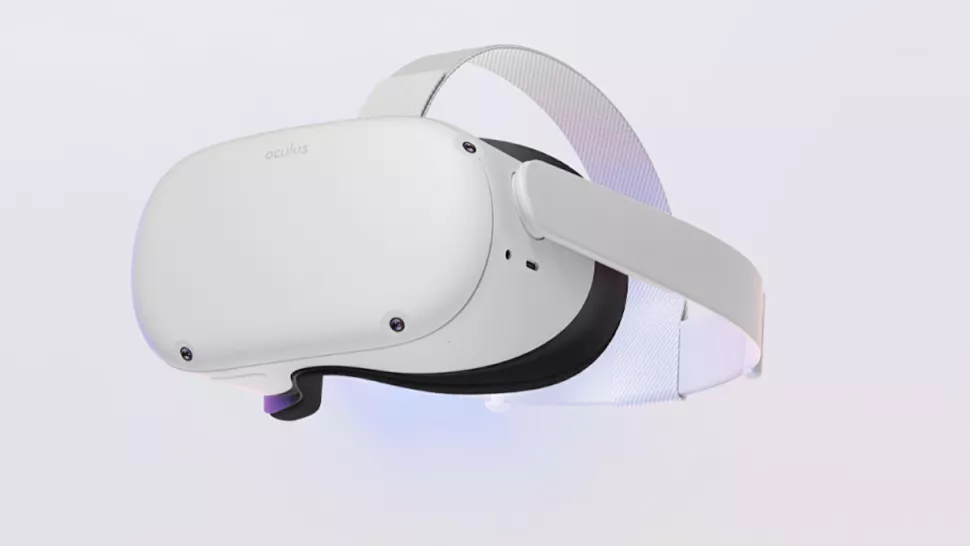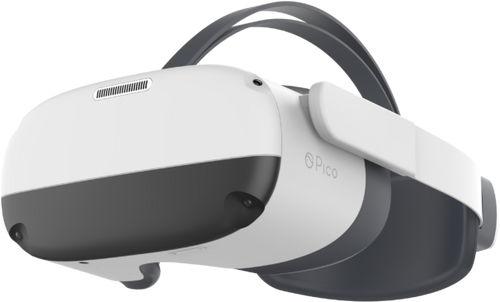Oculus Quest 2 vs Pico Neo 3
When you compare the Pico Neo 3 to the Oculus Quest 2 you can see which VR Headset is better. Let's take a look of the comparison, and see which model of VR Headset out ontop.
 Oculus Quest 2
Oculus Quest 24.4
Based on 7 reviews
What VR Headset is better?
When it comes to choosing a virtual reality headset, the Pico Neo 3 and Oculus Quest 2 are two great options. Both headsets offer excellent features and have their own advantages and disadvantages that make them stand out from one another.
The Pico Neo 3 is a standalone VR headset with a field of view of 98°, resolution of 1832x1920 and refresh rate of 90 Hz. One pro for the Pico Neo 3 is its impressive 90Hz refresh rate which provides smoother visuals than many other headsets on the market. The resolution is also quite good, allowing for sharp images in your immersive experience. Additionally, this headset has room scale technology which allows users to move around in virtual space without any external sensors or base stations required.
On the other hand, the Oculus Quest 2 offers its own unique benefits as well. It boasts a 97° field of view along with an 1832 x 1920 px resolution and 72 Hz refresh rate – which may be lower than some competitors but still provides plenty of performance power for most applications. Additionally, this headset uses Qualcomm Snapdragon XR2 processor for added speed and efficiency when running apps or playing games; making it ideal if you’re looking for something more advanced than what you get with most basic VR devices on the market today. Another plus is that it runs on Android 10 OS which gives users access to all their favorite apps while using this device, so they can really get an integrated experience that makes sense with their existing smartphone setup if they have one already installed at home.
After using both these headsets myself I’d definitely say that my personal preference leans towards the Oculus Quest 2 over the Pico Neo 3 mainly because it offers greater compatibility with smartphones due to its use of Android 10 OS as well as more efficient processing power thanks to its Qualcomm Snapdragon XR2 processor; giving me a much smoother user experience overall when compared against other similar devices available today such as HTC Vive Pro or Samsung Odyssey+. In addition to this, I found that it was able to deliver sharper visuals despite having slightly lower refresh rates compared to some competitors out there – adding up ultimately providing me with an all-around better virtual reality experience than what I got from using any other standalone device before trying this one out myself recently..
Specs comparison between the two VR Headsets
| Pico Neo 3 | Oculus Quest 2 | |
|---|---|---|
| Overview | ||
| Brand | Pico | Meta |
| Model Name | Neo 3 | Quest 2 |
| Release Date | 102021 | 13102020 |
| Country of Origin | United States | |
| Category | Standalone VR | Standalone VR |
| Battery Life | 3 h | |
| Display | ||
| Field of View | 98° | 97° |
| Resolution | 1832x1920 | 1832 x 1920 px |
| Refresh Rate | 90 Hz | 72 Hz |
| Display Type | Single LCD binocular | LCD |
| Sizing | ||
| Weight | 380g | 503 g |
| Dimensions | 192 x 102 x 143 mm | |
| Features | ||
| Room Scale? | YES | |
| 360 Tracking? | YES | |
| Usable with Glasses? | YES | |
| IPD Adjustment? | YES | |
| USB? | YES | |
| Bluetooth? | YES | |
